- Home
- Packaging Products
- Linerless Self-Adhesive Labelling System Market Size, Future Growth and Forecast 2033
Linerless Self-Adhesive Labelling System Market Size, Future Growth and Forecast 2033
Linerless Self-Adhesive Labelling System Market Segments - by Component (Printers, Consumables, Software), Application (Food & Beverage, Retail, Logistics, Healthcare, Manufacturing, Others), Technology (Thermal, Inkjet, Laser), End-User (SMEs, Large Enterprises), and Region (North America, Europe, Asia Pacific, Latin America, Middle East & Africa) - Market Dynamics, Growth Opportunities, Strategic Drivers, and PESTLE Outlook (2025–2033)
Linerless Self-Adhesive Labelling System Market Outlook
The linerless self-adhesive labelling system market was valued at $1.2 billion in 2024 and is projected to reach $2.8 billion by 2033, growing at a CAGR of 9.5% during the forecast period 2025-2033. This market is experiencing significant growth due to the increasing demand for sustainable and eco-friendly packaging solutions. The linerless technology eliminates the need for a release liner, reducing waste and material costs, which is a major driver for its adoption across various industries. The food and beverage sector, in particular, is a major contributor to the market's expansion, as companies seek to enhance their packaging efficiency and sustainability. Additionally, advancements in printing technologies and the integration of digital solutions are further propelling the market forward.
Despite the promising growth trajectory, the linerless self-adhesive labelling system market faces certain challenges. The initial setup cost for linerless labelling systems can be high, which may deter small and medium-sized enterprises from adopting this technology. Moreover, the complexity involved in the transition from traditional labelling systems to linerless solutions requires significant investment in training and equipment. However, the long-term benefits, such as reduced operational costs and environmental impact, present substantial growth potential. Regulatory support for Sustainable Packaging practices is also expected to bolster market growth, as governments worldwide implement stricter environmental regulations.
Report Scope
| Attributes | Details |
| Report Title | Linerless Self-Adhesive Labelling System Market Size, Future Growth and Forecast 2033 |
| Base Year | 2024 |
| Historic Data | 2017-2023 |
| Forecast Period | 2025-2033 |
| Number of Pages | 227 |
| Component | Printers, Consumables, Software |
| Application | Food & Beverage, Retail, Logistics, Healthcare, Manufacturing, Others |
| Technology | Thermal, Inkjet, Laser |
| End-User | SMEs, Large Enterprises |
| Customization Available | Yes* |
Opportunities & Threats
The linerless self-adhesive labelling system market presents numerous opportunities for growth, particularly in the realm of sustainability. As environmental concerns continue to rise, businesses are increasingly seeking packaging solutions that minimize waste and reduce carbon footprints. Linerless labelling systems offer a compelling solution by eliminating the need for a release liner, thereby reducing material usage and waste. This aligns with the global shift towards eco-friendly practices, providing a significant opportunity for market expansion. Additionally, the growing demand for efficient and cost-effective labelling solutions in the food and beverage industry is expected to drive further adoption of linerless technologies.
Another opportunity lies in the technological advancements within the linerless labelling sector. Innovations in printing technologies, such as digital and thermal printing, are enhancing the quality and versatility of linerless Labels. These advancements enable businesses to achieve high-quality prints with greater efficiency, catering to the diverse needs of various industries. Furthermore, the integration of smart technologies, such as RFID and QR codes, into linerless labels is opening new avenues for market growth. These technologies offer enhanced tracking and traceability, which are increasingly important in sectors like logistics and healthcare.
However, the market is not without its challenges. One of the primary restrainers is the high initial investment required for adopting linerless labelling systems. The cost of transitioning from traditional labelling methods to linerless solutions can be prohibitive for small and medium-sized enterprises. Additionally, the complexity of the technology necessitates specialized training and equipment, which can further increase costs. Despite these challenges, the long-term benefits of linerless labelling systems, such as reduced operational costs and environmental impact, make them an attractive option for businesses looking to enhance their sustainability efforts.
The linerless self-adhesive labelling system market is characterized by a competitive landscape with several key players vying for market share. The market is dominated by a few major companies that have established themselves as leaders through innovation, strategic partnerships, and a strong global presence. These companies are continuously investing in research and development to enhance their product offerings and maintain a competitive edge. The competitive landscape is further intensified by the presence of numerous regional players who are leveraging their local expertise to capture market share.
Among the leading companies in the linerless self-adhesive labelling system market are Avery Dennison Corporation, Coveris Holdings S.A., and R.R. Donnelley & Sons Company. Avery Dennison Corporation is a prominent player known for its innovative labelling solutions and strong focus on sustainability. The company has a significant market share due to its extensive product portfolio and global distribution network. Coveris Holdings S.A. is another key player, offering a wide range of linerless labelling solutions that cater to various industries, including food and beverage, retail, and logistics. The company's commitment to sustainability and innovation has helped it secure a substantial market share.
R.R. Donnelley & Sons Company is a major player in the market, known for its comprehensive labelling solutions and strong customer relationships. The company has a robust presence in the North American market and is expanding its reach in other regions through strategic partnerships and acquisitions. Other notable companies in the market include SATO Holdings Corporation, Ravenwood Packaging, and Hub Labels, Inc. These companies are focusing on expanding their product offerings and enhancing their technological capabilities to gain a competitive advantage.
In addition to these major players, there are several regional companies that are making significant contributions to the market. These companies are leveraging their local expertise and customer relationships to capture market share in their respective regions. The competitive landscape is further shaped by the entry of new players who are introducing innovative solutions to meet the evolving needs of the market. Overall, the linerless self-adhesive labelling system market is characterized by intense competition, with companies striving to differentiate themselves through innovation, sustainability, and customer-centric strategies.
Key Highlights Linerless Self-Adhesive Labelling System Market

- The market is projected to grow at a CAGR of 9.5% from 2025 to 2033.
- Increasing demand for sustainable packaging solutions is a major driver of market growth.
- Technological advancements in printing technologies are enhancing the quality of linerless labels.
- The food and beverage industry is a significant contributor to market expansion.
- High initial investment costs are a restraining factor for market growth.
- Integration of smart technologies like RFID and QR codes is opening new market opportunities.
- Regulatory support for sustainable packaging practices is expected to bolster market growth.
- North America and Europe are leading regions in terms of market share.
- Regional players are leveraging local expertise to capture market share.
- Intense competition is driving innovation and strategic partnerships among key players.
Competitive Intelligence
The linerless self-adhesive labelling system market is highly competitive, with several key players striving to maintain their market positions through innovation and strategic initiatives. Avery Dennison Corporation is a leader in the market, known for its extensive product portfolio and commitment to sustainability. The company has a strong global presence and is continuously investing in research and development to enhance its product offerings. Avery Dennison's focus on innovation and sustainability has helped it maintain a significant market share.
Coveris Holdings S.A. is another major player in the market, offering a wide range of linerless labelling solutions that cater to various industries. The company's commitment to sustainability and innovation has helped it secure a substantial market share. Coveris is focused on expanding its product offerings and enhancing its technological capabilities to gain a competitive advantage. The company's strong customer relationships and global distribution network further strengthen its market position.
R.R. Donnelley & Sons Company is a prominent player in the market, known for its comprehensive labelling solutions and strong customer relationships. The company has a robust presence in the North American market and is expanding its reach in other regions through strategic partnerships and acquisitions. R.R. Donnelley's focus on customer-centric strategies and innovation has helped it maintain a competitive edge in the market.
SATO Holdings Corporation is a key player in the market, offering innovative labelling solutions that cater to various industries. The company's focus on technological advancements and customer satisfaction has helped it secure a significant market share. SATO Holdings is continuously investing in research and development to enhance its product offerings and maintain its competitive position in the market.
Ravenwood Packaging is a notable player in the market, known for its innovative linerless labelling solutions. The company's focus on sustainability and innovation has helped it capture a significant market share. Ravenwood Packaging is committed to expanding its product offerings and enhancing its technological capabilities to meet the evolving needs of the market.
Regional Market Intelligence of Linerless Self-Adhesive Labelling System
The global linerless self-adhesive labelling system market is segmented into several key regions, including North America, Europe, Asia-Pacific, Latin America, and Middle East & Africa. Each region presents unique growth opportunities and challenges, driven by varying market dynamics and consumer preferences.
In North America, the market is driven by the increasing demand for sustainable packaging solutions and the presence of major industry players. The region is characterized by a strong focus on innovation and technological advancements, which are driving the adoption of linerless labelling systems. The food and beverage industry is a significant contributor to market growth in this region, as companies seek to enhance their packaging efficiency and sustainability.
Europe is another leading region in the linerless self-adhesive labelling system market, driven by stringent environmental regulations and a strong emphasis on sustainability. The region is home to several key players who are investing in research and development to enhance their product offerings. The growing demand for eco-friendly packaging solutions in the food and beverage industry is a major driver of market growth in Europe.
In the Asia-Pacific region, the market is experiencing rapid growth due to the increasing demand for efficient and cost-effective labelling solutions. The region is characterized by a growing population and rising disposable incomes, which are driving the demand for packaged goods. The food and beverage industry is a significant contributor to market growth in this region, as companies seek to enhance their packaging efficiency and sustainability.
Latin America and Middle East & Africa are emerging markets for linerless self-adhesive labelling systems, driven by the growing demand for sustainable packaging solutions. The regions are characterized by a strong focus on innovation and technological advancements, which are driving the adoption of linerless labelling systems. The food and beverage industry is a significant contributor to market growth in these regions, as companies seek to enhance their packaging efficiency and sustainability.
Top Countries Insights in Linerless Self-Adhesive Labelling System
The linerless self-adhesive labelling system market is witnessing significant growth in several key countries, driven by varying market dynamics and consumer preferences. In the United States, the market is valued at approximately $400 million with a CAGR of 10%. The country's strong focus on sustainability and innovation is driving the adoption of linerless labelling systems, particularly in the food and beverage industry.
In Germany, the market is valued at approximately $250 million with a CAGR of 9%. The country's stringent environmental regulations and strong emphasis on sustainability are driving the demand for eco-friendly packaging solutions. The food and beverage industry is a significant contributor to market growth in Germany, as companies seek to enhance their packaging efficiency and sustainability.
China is experiencing rapid growth in the linerless self-adhesive labelling system market, with a market value of approximately $300 million and a CAGR of 12%. The country's growing population and rising disposable incomes are driving the demand for packaged goods, which is contributing to market growth. The food and beverage industry is a significant contributor to market growth in China, as companies seek to enhance their packaging efficiency and sustainability.
In Brazil, the market is valued at approximately $150 million with a CAGR of 8%. The country's growing demand for sustainable packaging solutions is driving the adoption of linerless labelling systems. The food and beverage industry is a significant contributor to market growth in Brazil, as companies seek to enhance their packaging efficiency and sustainability.
India is another key market for linerless self-adhesive labelling systems, with a market value of approximately $200 million and a CAGR of 11%. The country's growing population and rising disposable incomes are driving the demand for packaged goods, which is contributing to market growth. The food and beverage industry is a significant contributor to market growth in India, as companies seek to enhance their packaging efficiency and sustainability.
Linerless Self-Adhesive Labelling System Market Segments Insights

Component Analysis
The linerless self-adhesive labelling system market is segmented by component into printers, consumables, and software. The printers segment is a significant contributor to market growth, driven by the increasing demand for efficient and cost-effective labelling solutions. Technological advancements in printing technologies, such as digital and thermal printing, are enhancing the quality and versatility of linerless labels. These advancements enable businesses to achieve high-quality prints with greater efficiency, catering to the diverse needs of various industries.
The consumables segment, which includes label materials and adhesives, is also experiencing significant growth. The demand for sustainable and eco-friendly materials is driving the adoption of linerless labelling systems, as businesses seek to reduce waste and minimize their environmental impact. The software segment is witnessing growth due to the increasing integration of digital solutions in labelling systems. These solutions offer enhanced tracking and traceability, which are increasingly important in sectors like logistics and healthcare.
Application Analysis
The linerless self-adhesive labelling system market is segmented by application into food & beverage, retail, logistics, healthcare, manufacturing, and others. The food and beverage industry is a major contributor to market growth, driven by the increasing demand for efficient and sustainable packaging solutions. Companies in this sector are adopting linerless labelling systems to enhance their packaging efficiency and reduce waste.
The retail and logistics sectors are also significant contributors to market growth, as businesses seek to improve their supply chain efficiency and reduce operational costs. The healthcare industry is witnessing growth in the adoption of linerless labelling systems, driven by the need for accurate and reliable labelling solutions. The manufacturing sector is also experiencing growth, as companies seek to enhance their production efficiency and reduce waste.
Technology Analysis
The linerless self-adhesive labelling system market is segmented by technology into thermal, inkjet, and laser. The thermal technology segment is a significant contributor to market growth, driven by its cost-effectiveness and efficiency. Thermal printing technology is widely used in various industries, including food and beverage, retail, and logistics, due to its ability to produce high-quality prints with minimal waste.
The inkjet technology segment is also experiencing growth, driven by its versatility and ability to produce high-quality prints. Inkjet printing technology is widely used in the healthcare and manufacturing sectors, where precision and accuracy are critical. The laser technology segment is witnessing growth due to its ability to produce high-quality prints with minimal waste. Laser printing technology is widely used in the logistics and retail sectors, where efficiency and cost-effectiveness are critical.
End-User Analysis
The linerless self-adhesive labelling system market is segmented by end-user into SMEs and large enterprises. The SMEs segment is a significant contributor to market growth, driven by the increasing demand for cost-effective and efficient labelling solutions. SMEs are adopting linerless labelling systems to enhance their packaging efficiency and reduce operational costs.
The large enterprises segment is also experiencing growth, driven by the increasing demand for sustainable and eco-friendly packaging solutions. Large enterprises are adopting linerless labelling systems to enhance their sustainability efforts and reduce waste. The growing demand for efficient and cost-effective labelling solutions in various industries is driving the adoption of linerless labelling systems among large enterprises.
Market Share Analysis
The linerless self-adhesive labelling system market is characterized by a competitive landscape with several key players vying for market share. Avery Dennison Corporation, Coveris Holdings S.A., and R.R. Donnelley & Sons Company are among the leading companies in the market, known for their innovative labelling solutions and strong focus on sustainability. These companies have established themselves as leaders through strategic partnerships, a strong global presence, and continuous investment in research and development.
The market share distribution is influenced by several factors, including pricing, innovation, and partnerships. Companies that are able to offer cost-effective and innovative solutions are gaining market share, while those that fail to adapt to changing market dynamics are falling behind. The competitive landscape is further shaped by the entry of new players who are introducing innovative solutions to meet the evolving needs of the market. Overall, the linerless self-adhesive labelling system market is characterized by intense competition, with companies striving to differentiate themselves through innovation, sustainability, and customer-centric strategies.
Linerless Self-Adhesive Labelling System Market Segments
The Linerless Self-Adhesive Labelling System market has been segmented on the basis of
Component
- Printers
- Consumables
- Software
Application
- Food & Beverage
- Retail
- Logistics
- Healthcare
- Manufacturing
- Others
Technology
- Thermal
- Inkjet
- Laser
End-User
- SMEs
- Large Enterprises
Primary Interview Insights
What are the key drivers for the growth of the linerless self-adhesive labelling system market?
What challenges does the linerless self-adhesive labelling system market face?
How is the competitive landscape shaping up in this market?
Which regions are leading in terms of market share?
What opportunities exist for new entrants in the market?
Latest Reports

The fiber drums market was valued at $1.2 billion in 2024 and is projected to reach $2.1 billion by 2033, growing at a CAGR of 6.5% during the forecast period 2025–2033.
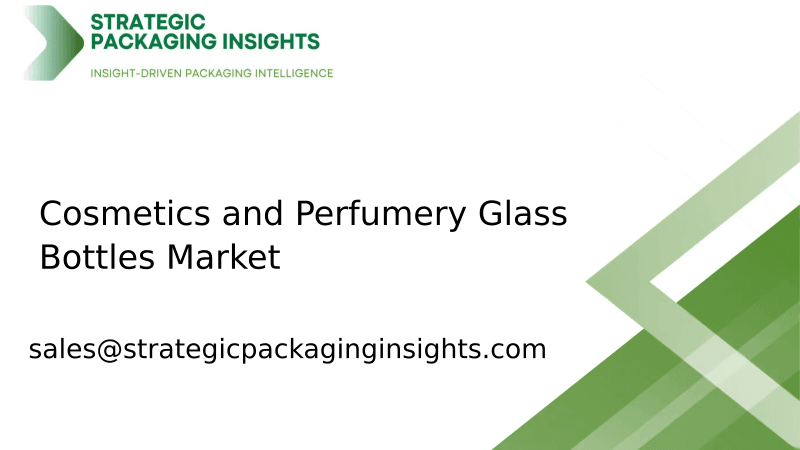
The cosmetics and perfumery glass bottles market was valued at $1.5 billion in 2024 and is projected to reach $2.3 billion by 2033, growing at a CAGR of 4.8% during the forecast period 2025–2033.

The medical devices packaging market was valued at $25 billion in 2024 and is projected to reach $40 billion by 2033, growing at a CAGR of 5.5% during the forecast period 2025–2033.
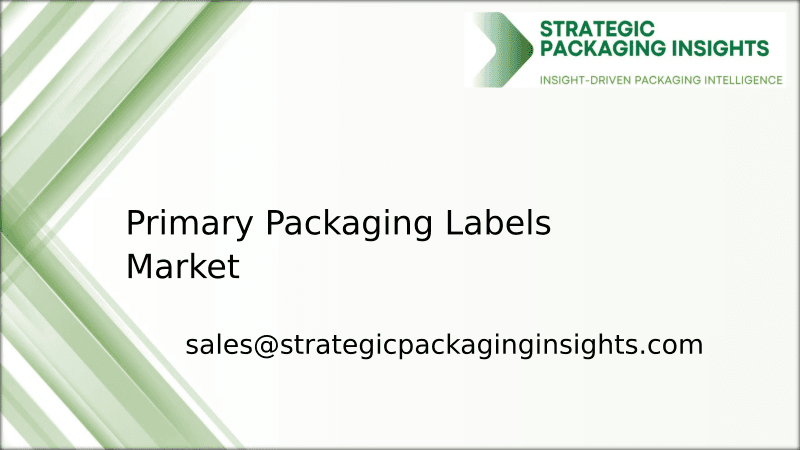
The primary packaging labels market was valued at $35 billion in 2024 and is projected to reach $55 billion by 2033, growing at a CAGR of 5.2% during the forecast period 2025–2033.

The corrugated board packaging market was valued at $250 billion in 2024 and is projected to reach $380 billion by 2033, growing at a CAGR of 4.5% during the forecast period 2025–2033.
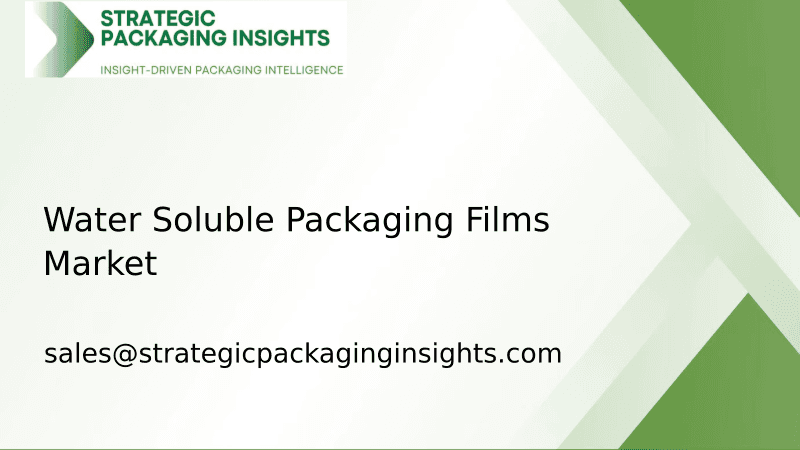
The Water Soluble Packaging Films market was valued at $2.8 billion in 2024 and is projected to reach $5.6 billion by 2033, growing at a CAGR of 8.1% during the forecast period 2025–2033.

The Aluminium Foil Packaging market was valued at $25 billion in 2024 and is projected to reach $40 billion by 2033, growing at a CAGR of 5.5% during the forecast period 2025–2033.

The self-heating food packaging market was valued at $4.5 billion in 2024 and is projected to reach $7.8 billion by 2033, growing at a CAGR of 6.2% during the forecast period 2025–2033.

The Smart Container market was valued at $2.5 billion in 2024 and is projected to reach $8.7 billion by 2033, growing at a CAGR of 14.5% during the forecast period 2025–2033.

The Automatic Labeling Machine market was valued at $2.5 billion in 2024 and is projected to reach $4.8 billion by 2033, growing at a CAGR of 7.2% during the forecast period 2025–2033.

The Hot Melt Glue Labeler market was valued at $1.2 billion in 2024 and is projected to reach $2.3 billion by 2033, growing at a CAGR of 6.5% during the forecast period 2025–2033.

The Ethical Label market was valued at $1.5 billion in 2024 and is projected to reach $3.2 billion by 2033, growing at a CAGR of 8.5% during the forecast period 2025–2033.

The Packaging Tensioner market was valued at $1.2 billion in 2024 and is projected to reach $2.3 billion by 2033, growing at a CAGR of 6.5% during the forecast period 2025–2033.
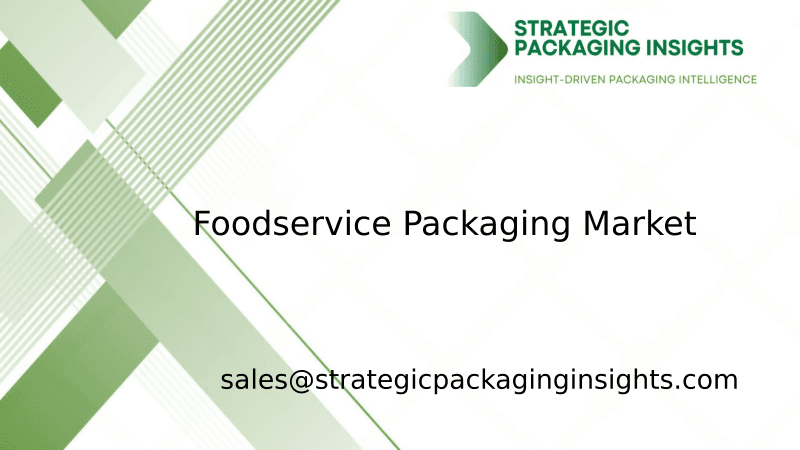
The foodservice packaging market was valued at $120 billion in 2024 and is projected to reach $180 billion by 2033, growing at a CAGR of 4.5% during the forecast period 2025–2033.

The nano-enabled packaging market was valued at $15.2 billion in 2024 and is projected to reach $35.6 billion by 2033, growing at a CAGR of 9.5% during the forecast period 2025–2033.
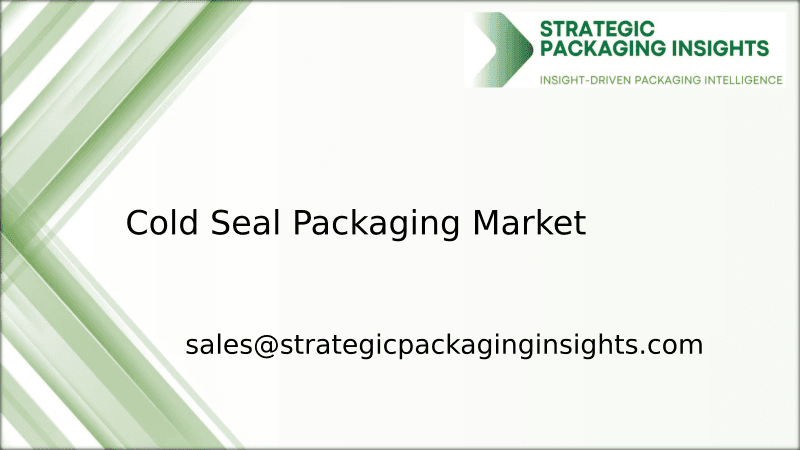
The Cold Seal Packaging market was valued at $1.5 billion in 2024 and is projected to reach $2.3 billion by 2033, growing at a CAGR of 4.8% during the forecast period 2025–2033.

The Transparent Barrier Packaging Films market was valued at $12.5 billion in 2024 and is projected to reach $20.3 billion by 2033, growing at a CAGR of 5.8% during the forecast period 2025–2033.

The Flatback Tape market was valued at $2.5 billion in 2024 and is projected to reach $4.1 billion by 2033, growing at a CAGR of 5.8% during the forecast period 2025–2033.
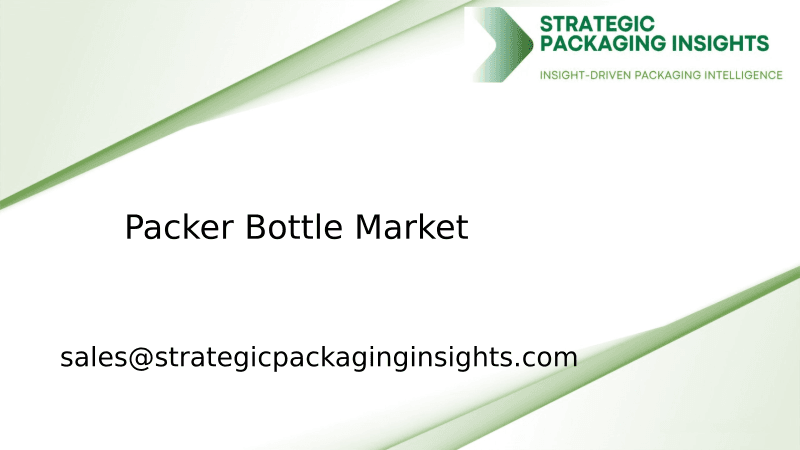
The packer bottle market was valued at $3.5 billion in 2024 and is projected to reach $5.8 billion by 2033, growing at a CAGR of 5.2% during the forecast period 2025–2033.
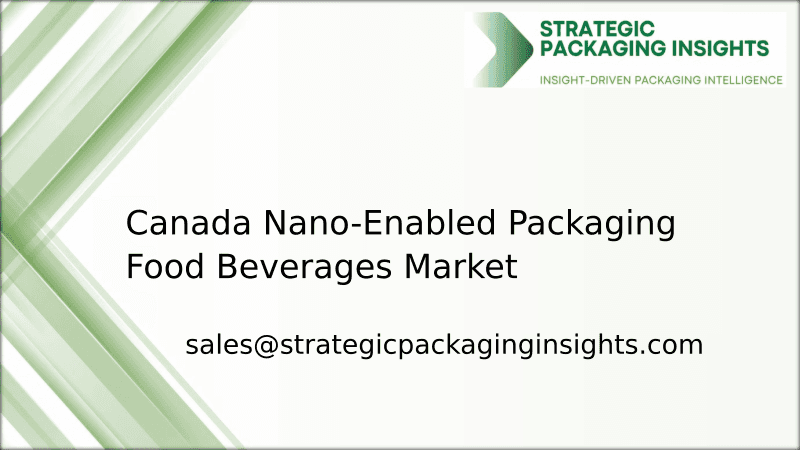
The Canada Nano-Enabled Packaging Food Beverages market was valued at $1.2 billion in 2024 and is projected to reach $3.5 billion by 2033, growing at a CAGR of 12.5% during the forecast period 2025–2033.
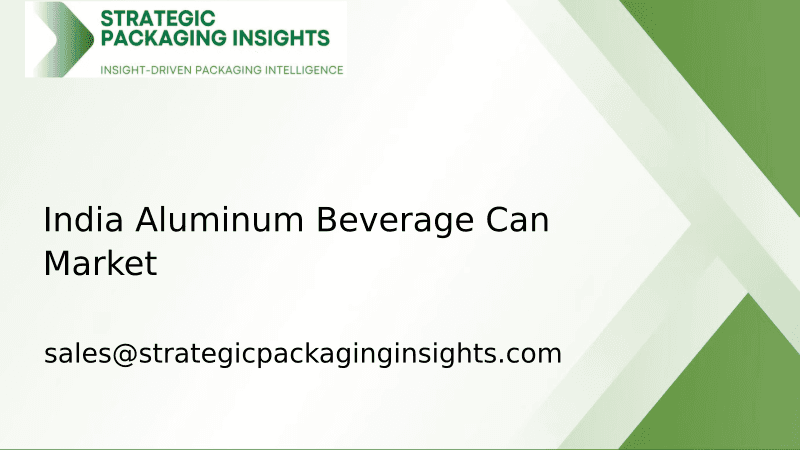
The India Aluminum Beverage Can market was valued at $1.2 billion in 2024 and is projected to reach $2.5 billion by 2033, growing at a CAGR of 8.5% during the forecast period 2025–2033.
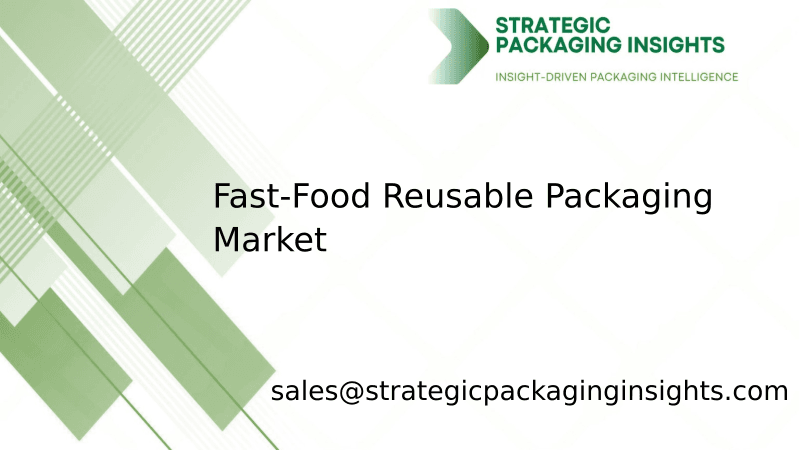
The fast-food reusable packaging market was valued at $1.2 billion in 2024 and is projected to reach $3.5 billion by 2033, growing at a CAGR of 12.5% during the forecast period 2025–2033.
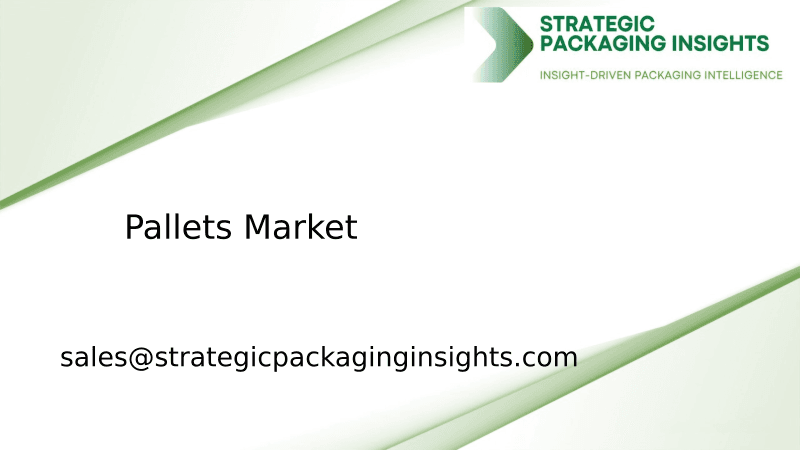
The pallets market was valued at $59.91 billion in 2024 and is projected to reach $88.69 billion by 2033, growing at a CAGR of 4.5% during the forecast period 2025–2033.

The lamination adhesives market was valued at $2.5 billion in 2024 and is projected to reach $4.1 billion by 2033, growing at a CAGR of 5.8% during the forecast period 2025–2033.

The garment packing machine market was valued at $1.2 billion in 2024 and is projected to reach $2.5 billion by 2033, growing at a CAGR of 8.5% during the forecast period 2025–2033.

The fiber drums market was valued at $1.2 billion in 2024 and is projected to reach $2.1 billion by 2033, growing at a CAGR of 6.5% during the forecast period 2025–2033.

The cosmetics and perfumery glass bottles market was valued at $1.5 billion in 2024 and is projected to reach $2.3 billion by 2033, growing at a CAGR of 4.8% during the forecast period 2025–2033.

The medical devices packaging market was valued at $25 billion in 2024 and is projected to reach $40 billion by 2033, growing at a CAGR of 5.5% during the forecast period 2025–2033.

The primary packaging labels market was valued at $35 billion in 2024 and is projected to reach $55 billion by 2033, growing at a CAGR of 5.2% during the forecast period 2025–2033.

The corrugated board packaging market was valued at $250 billion in 2024 and is projected to reach $380 billion by 2033, growing at a CAGR of 4.5% during the forecast period 2025–2033.

The Water Soluble Packaging Films market was valued at $2.8 billion in 2024 and is projected to reach $5.6 billion by 2033, growing at a CAGR of 8.1% during the forecast period 2025–2033.

The Aluminium Foil Packaging market was valued at $25 billion in 2024 and is projected to reach $40 billion by 2033, growing at a CAGR of 5.5% during the forecast period 2025–2033.

The self-heating food packaging market was valued at $4.5 billion in 2024 and is projected to reach $7.8 billion by 2033, growing at a CAGR of 6.2% during the forecast period 2025–2033.

The Smart Container market was valued at $2.5 billion in 2024 and is projected to reach $8.7 billion by 2033, growing at a CAGR of 14.5% during the forecast period 2025–2033.

The Automatic Labeling Machine market was valued at $2.5 billion in 2024 and is projected to reach $4.8 billion by 2033, growing at a CAGR of 7.2% during the forecast period 2025–2033.

The Hot Melt Glue Labeler market was valued at $1.2 billion in 2024 and is projected to reach $2.3 billion by 2033, growing at a CAGR of 6.5% during the forecast period 2025–2033.

The Ethical Label market was valued at $1.5 billion in 2024 and is projected to reach $3.2 billion by 2033, growing at a CAGR of 8.5% during the forecast period 2025–2033.

The Packaging Tensioner market was valued at $1.2 billion in 2024 and is projected to reach $2.3 billion by 2033, growing at a CAGR of 6.5% during the forecast period 2025–2033.

The foodservice packaging market was valued at $120 billion in 2024 and is projected to reach $180 billion by 2033, growing at a CAGR of 4.5% during the forecast period 2025–2033.

The nano-enabled packaging market was valued at $15.2 billion in 2024 and is projected to reach $35.6 billion by 2033, growing at a CAGR of 9.5% during the forecast period 2025–2033.

The Cold Seal Packaging market was valued at $1.5 billion in 2024 and is projected to reach $2.3 billion by 2033, growing at a CAGR of 4.8% during the forecast period 2025–2033.

The Transparent Barrier Packaging Films market was valued at $12.5 billion in 2024 and is projected to reach $20.3 billion by 2033, growing at a CAGR of 5.8% during the forecast period 2025–2033.

The Flatback Tape market was valued at $2.5 billion in 2024 and is projected to reach $4.1 billion by 2033, growing at a CAGR of 5.8% during the forecast period 2025–2033.

The packer bottle market was valued at $3.5 billion in 2024 and is projected to reach $5.8 billion by 2033, growing at a CAGR of 5.2% during the forecast period 2025–2033.

The Canada Nano-Enabled Packaging Food Beverages market was valued at $1.2 billion in 2024 and is projected to reach $3.5 billion by 2033, growing at a CAGR of 12.5% during the forecast period 2025–2033.

The India Aluminum Beverage Can market was valued at $1.2 billion in 2024 and is projected to reach $2.5 billion by 2033, growing at a CAGR of 8.5% during the forecast period 2025–2033.

The fast-food reusable packaging market was valued at $1.2 billion in 2024 and is projected to reach $3.5 billion by 2033, growing at a CAGR of 12.5% during the forecast period 2025–2033.

The pallets market was valued at $59.91 billion in 2024 and is projected to reach $88.69 billion by 2033, growing at a CAGR of 4.5% during the forecast period 2025–2033.

The lamination adhesives market was valued at $2.5 billion in 2024 and is projected to reach $4.1 billion by 2033, growing at a CAGR of 5.8% during the forecast period 2025–2033.

The garment packing machine market was valued at $1.2 billion in 2024 and is projected to reach $2.5 billion by 2033, growing at a CAGR of 8.5% during the forecast period 2025–2033.
